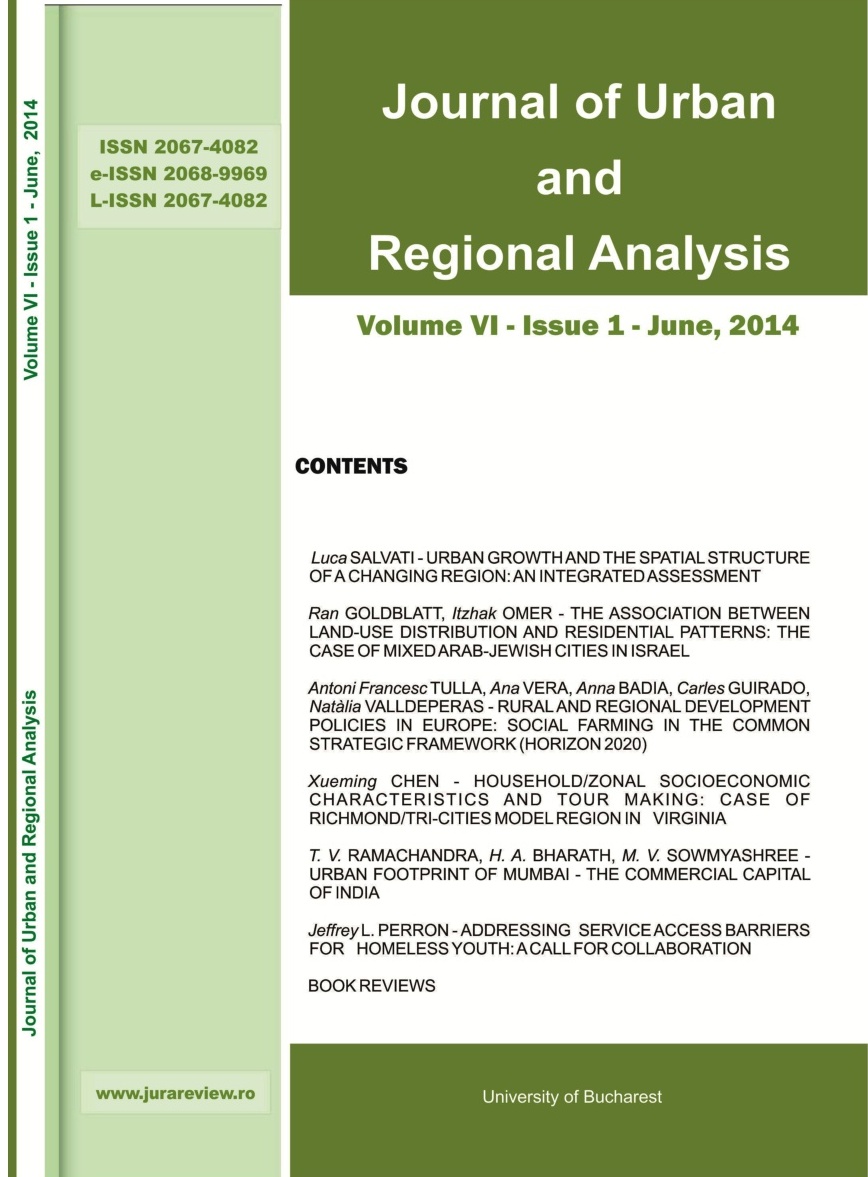HOUSEHOLD/ZONAL SOCIOECONOMIC CHARACTERISTICS AND TOUR MAKING: CASE OF RICHMOND/TRI-CITIES MODEL REGION IN VIRGINIA
HOUSEHOLD/ZONAL SOCIOECONOMIC CHARACTERISTICS AND TOUR MAKING: CASE OF RICHMOND/TRI-CITIES MODEL REGION IN VIRGINIA
Author(s): Xueming ChenSubject(s): Policy, planning, forecast and speculation, Rural and urban sociology, Socio-Economic Research
Published by: Editura Universitară
Keywords: tour; Richmond/Tri-Cities model region; household and zonal socio-economic characteristics; regression model;
Summary/Abstract: This paper statistically assesses the impacts of household/zonal socio economic characteristics on tour making within the Richmond/Tri-Cities Model Region, Virginia, United States, based on the dataset made available through the 2009 Virginia National Household Travel Survey (NHTS) Add-On Program. The tour analysis distinguishes nine tour types (three simple tours and six complex tours) stratified by aggregate tour purposes of work (including school and other subsistence activities), maintenance and discretionary. A series of regression model runs have yielded the following conclusions: First, at aggregate level, the number of drivers, median household income, household size, number of workers, and zonal walking modal share are statistically significant and positively impact tour frequency. Tour length and complexity are positively related to household income and number of vehicles, but negatively related to zonal walking modal share. Second, at an individual tour type level, each tour type’s frequency/length/complexity is impacted by a different set of household/zonal socioeconomic characteristics. Zonal socioeconomic characteristics have little or no impacts on household tour making. It is recognized that many unknown factors may also have impacted tour activities, which require further in-depth studies in order to better explain complex tours.
Journal: Journal of Urban and Regional Analysis
- Issue Year: 6/2014
- Issue No: 1
- Page Range: 53-69
- Page Count: 17
- Language: English

